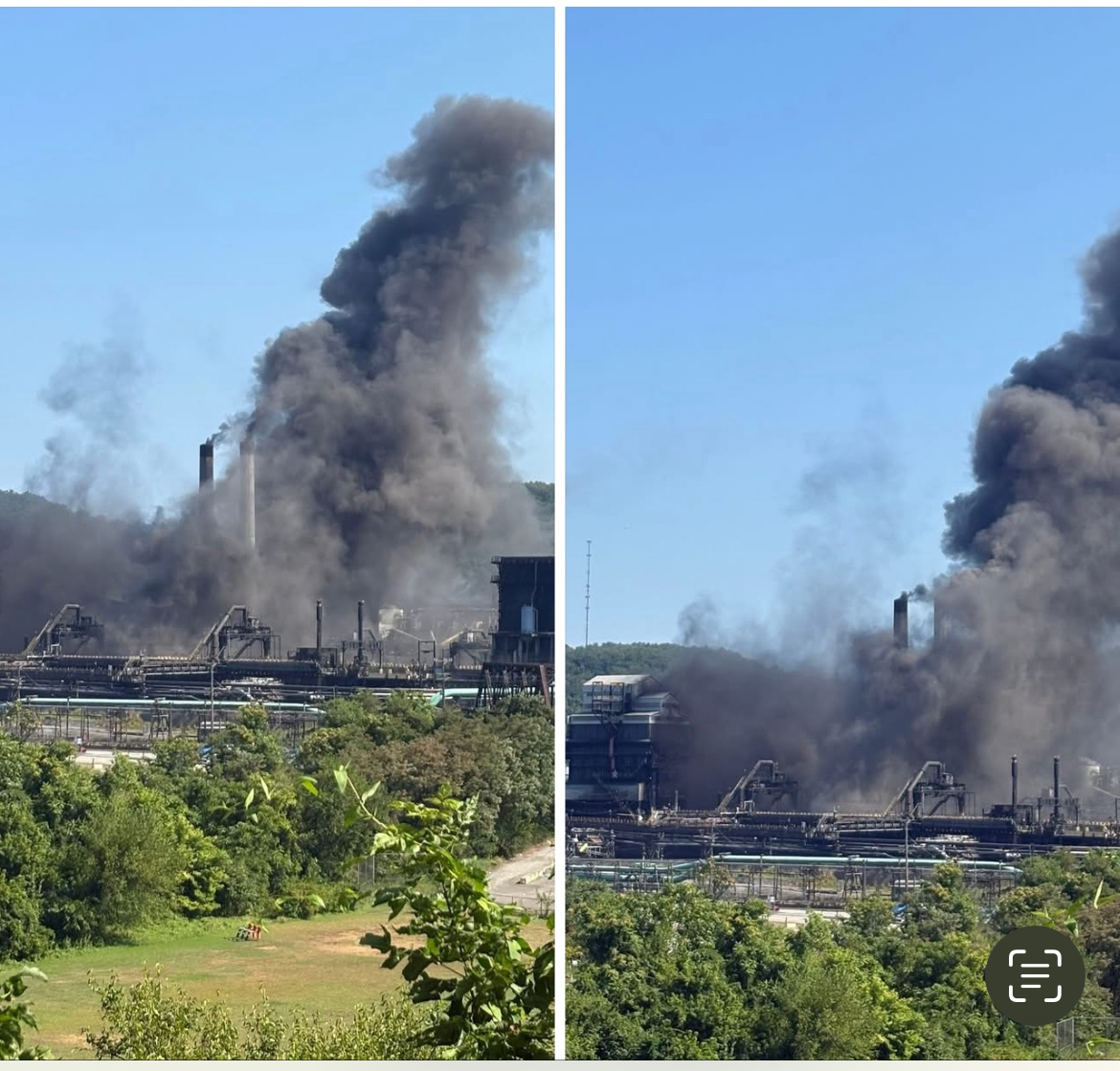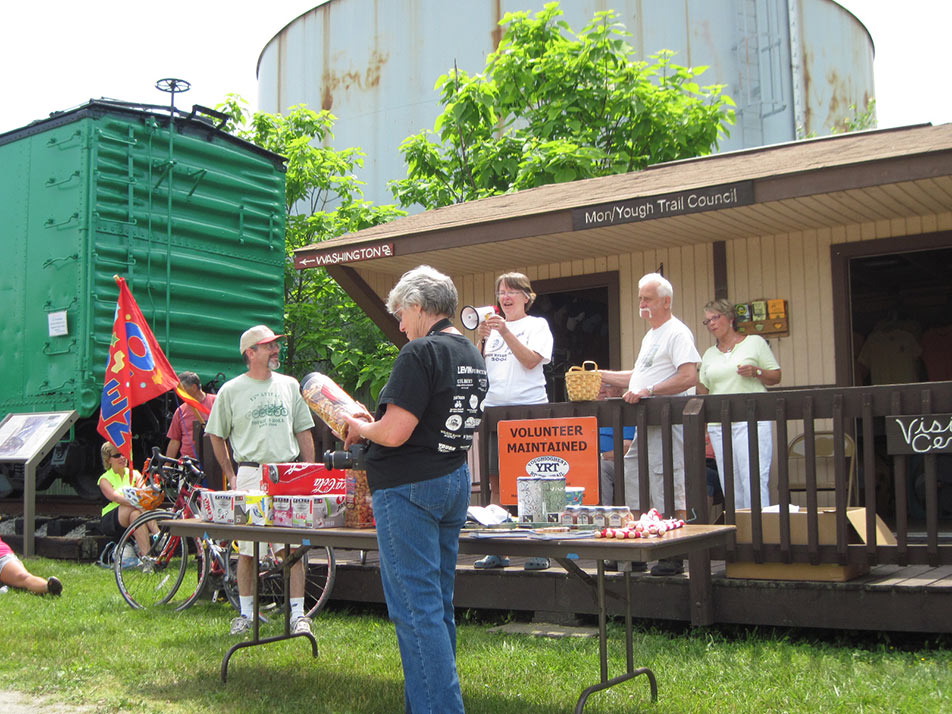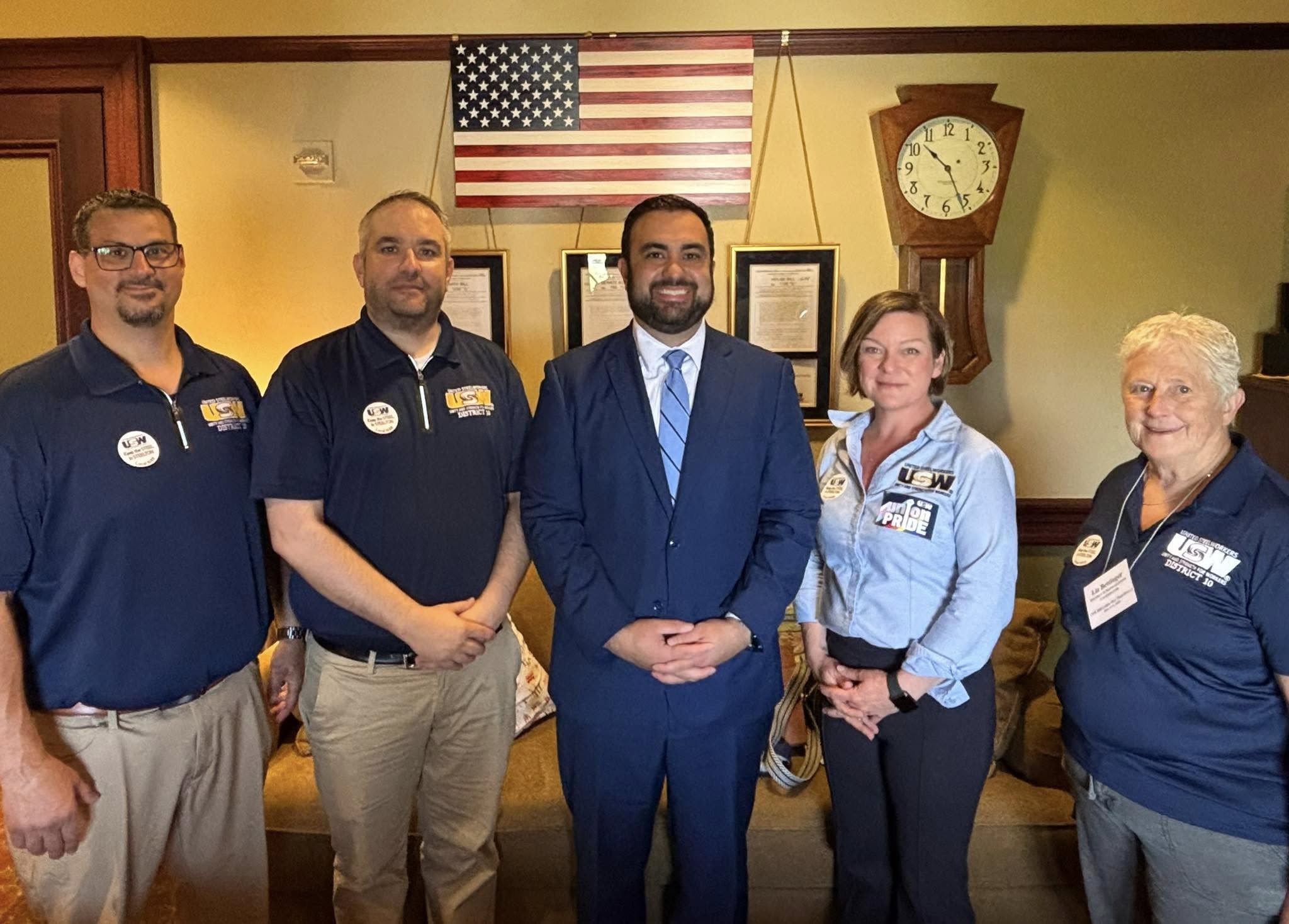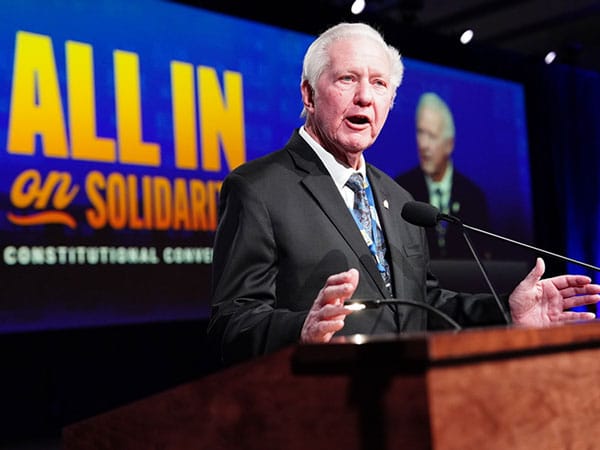August 21, 2025 |
By Danielle M. Smith - Public News Service | Posted in: State & Region
This November, Pennsylvanians will not see presidential or congressional races on the ballot but voters will decide whether three state Supreme Court justices keep their seats.
The decision could affect issues ranging from voting rights to whether or not Pennsylvania becomes subject to a grueling battle over congressional districts, as Texas and other states are currently facing.
Daniel Mallinson, associate professor of public policy and administration at Penn State University in Harrisburg, said unlike the U.S. Supreme Court, states choose judges in different ways, and Pennsylvania uses elections.
He warned with low turnout common in odd-year elections, Republicans could gain ground and shift the balance of power in the key battleground state.
Read More
August 21, 2025 |
By Danielle M. Smith - Public News Service | Posted in: State & Region
AmeriCorps members at a service project. Pennsylvania and other states are fighting against a proposed 41 percent funding cut imposed on the agency by so-called “DOGE” at the direction of Elon Musk. (AmeriCorps photo)
Federal cuts to AmeriCorps are shaking up public service opportunities for young Pennsylvanians.
The Trump administration slashed 41 percent of the agency’s funding this spring eliminating $400 million in grants and sidelining over 32,000 members nationwide.
Hillary Kane, director of the Philadelphia Higher Education Network for Neighborhood Development, said her group initially lost one of two AmeriCorps grants, which fund yearlong public service commitments with modest stipends. She noted the grants were later restored. The cut had threatened key career pathways into public service, education and health care.
Read More
August 14, 2025 |
By Staff Reports | Posted in: State & Region
This story was written by Tube City Almanac Editor Jason Togyer and includes reporting by Danielle Smith of Keystone State News Connection.
A massive explosion at U.S. Steel’s Clairton Plant killed two workers and injured an unknown number of other employees. A camera operated by the non-profit Breathe Project captured the moment of the blast. The investigation into the cause of the explosion “is going to take time,” Allegheny County Executive Sara Innamorato said. (Keystone State News Connection photo courtesy Breathe Project)
As local and federal authorities investigate a deadly blast at U.S. Steel’s Clairton Plant, local groups have renewed their concerns about the health and safety of plant workers and the community.
Two employees died and at least 12 people were treated at local hospitals following an explosion Monday morning at the facilty, which employs about 1,400 workers.
Clairton Plant is the largest operation of its kind in North America. It superheats coal in giant ovens, called batteries, to produce coke, a fuel used in blast furnaces for steelmaking.
The Allegheny County medical examiner’s office identified one of the victims as Timothy Quinn, 39, of Westmoreland County. He was pronounced dead at the scene. The name of the other victim has not yet officially been released.
Read More
July 22, 2025 |
By Danielle M. Smith - Public News Service | Posted in: State & Region
About 40 municipalities in Pennsylvania have banned retailers from providing customers with single-use plastic bags, which are difficult to recycle. (Tube City Almanac photo)
A new report says Pennsylvania ranks near the bottom of all 50 states in its efforts to reduce pollution from plastic waste, including plastic bags.
July is Plastic-Free Month and the Ocean Conservancy’s “United States of Plastics” report gave the state a score of just 1.5 of a possible 5.
Anja Brandon, director of plastics policy for the advocacy group Ocean Conservancy and co-author of the report, said Pennsylvania has laws to support recycling of harmful chemicals. She said the state should consider doing the same with plastic waste.
Read More
July 18, 2025 |
By Danielle M. Smith - Public News Service | Posted in: State & Region
A gas-drilling site in Penn Twp., Westmoreland County, shown in October 2022. (Ted Auch photo for FracTracker Alliance, licensed under Creative Commons Attribution-NonCommercial 2.0 Generic)
The Pennsylvania Department of Environmental Protection is asking the public to weigh in on a federal Environmental Protection Agency proposal to curb methane emissions from oil and gas sites.
Methane is a greenhouse gas more than 80 times more powerful than carbon dioxide and is thought to be a driver of climate change.
Barbara Jarmoska, former director of the Responsible Decarbonization Alliance who lives in Lycoming County, said the EPA plan is built on Biden-era Inflation Reduction Act efforts. Its federal funding has been cut but people can still review the plan and share their feedback during the public comment period. She noted the EPA proposal would decrease pollution, improve air quality and create jobs.
Read More
July 06, 2025 |
By Stacy Alderman | Posted in: State & Region
Volunteers with the Mon-Yough Trail Council dedicate a few hours each week to keeping their portion of the Great Allegheny Passage trail clear and open. (Photo courtesy Mon-Yough Trail Council)
After heavy storms and flooding affected much of the Mon Valley earlier this summer, Ken Medved with the Mon-Yough Trail Council was glad to see that its section of the Great Allegheny Passage didn’t have any weather-related damage.
Thankfully, volunteers have been able to focus on their usual summer maintenance — mowing, grooming weeds, and checking for erosion — readying this part of the trail for their busiest season.
Those members who give their time every Wednesday and Saturday are dedicated to keeping the 15-mile stretch of the GAP trail from Port Vue to the Westmoreland County line as accessible and welcoming as possible. This care and passion is evident in the events they host, like the recently held Half Marathon and five-kilometer Run/Walk.
Read More
July 01, 2025 |
By Danielle M. Smith - Public News Service | Posted in: State & Region
The Trump Administration’s budget — which the president and Republicans have called the “One Big Beautiful Bill Act” — hit a roadblock after the Senate parliamentarian has ruled that a key Medicaid provider tax change violates chamber rules.
The House version would slash federal Medicaid spending by at least $700 billion to help fund tax cuts and other Trump-era priorities.
Molly McCullough, a telemetry float registered nurse in southwestern Pennsylvania, warned the cuts could put seniors at risk and threaten rural hospitals. She said many older adults in this part of the state depend on Medicaid, adding that she hopes the Senate’s action helps protect their care.
Read More
June 25, 2025 |
By Jason Togyer | Posted in: State & Region
Members of United Steelworkers District 10 met June 10 with State Sen. Nick Pisciotanno. (Submitted photo courtesy State Sen. Nick Pisciottano)
Leaders of the United Steelworkers union are putting their support behind a proposed bill from a local legislator to shore up the future of steelmaking in Pennsylvania.
The Fueling Opportunities for the Revitalization, Growth, and Efficiency of Steel Act — “FORGES” — was announced last month by State Sen. Nick Pisciottano, West Mifflin Democrat, who is seeking co-sponsors.
Although it has not yet been introduced officially, it has attracted support from three state legislators — including State Rep. John Inglis of West Mifflin.
The bill would create incentives to support the steel industry in Pennsylvania, including sales tax exemptions for the use of Pennsylvania-made steel as well as tax credits for upgrades to Pennsylvania steelmaking facilities.
“I think it’s very important,” said Bernie Hall, director of USW District 10, based in North Versailles Twp. “The best part of the bill is that it brings the steel industry into the state budget conversation.”
Read More
June 18, 2025 |
By Jason Togyer | Posted in: State & Region
David McCall, president of the United Steelworkers union, addresses its constitutional convention in April. (Photo courtesy United Steelworkers)
The president of the union representing production employees at U.S. Steel called the so-called “golden share” awarded to the federal government “startling” and said his organization will hold the company’s new owners accountable for their promises.
David McCall, president of the United Steelworkers International, said that when media scrutiny of the Nippon Steel takeover wanes, the union will remain vigilant.
“As the sale concludes, it seems likely that attention will dissipate,” McCall said in a prepared statement. “U.S. Steel’s PR machine will power down, and the majority of elected officials will turn their attention elsewhere.”
Read More
June 18, 2025 |
By Jason Togyer | Posted in: State & Region
UPDATED: Adds comments from Allegheny County Executive Sara Innamorato
U.S. Steel’s Edgar Thomson Plant was founded by Andrew Carnegie in 1873 and forms the nucleus of what is now called the Mon Valley Works. (Mark Dixon photo via Flickr, licensed under Creative Commons)
Japan-based Nippon Steel and Pittsburgh’s U.S. Steel announced Wednesday morning that they have agreed to a deal that will preserve the company’s headquarters in Pittsburgh and commit to $11 billion of investment in American steel-making and mining facilities.
The almost $15 billion deal also gives the federal government a seat on U.S. Steel’s board of directors. In addition, it will require consent from the President of the United States on certain operating decisions, including moving jobs out of the U.S. Both sides are calling the agreement a “golden share” for the government.
Trading of U.S. Steel shares was halted at 8:30 a.m. Wednesday on the New York Stock Exchange, and the stock will be delisted from the exchange June 30.
The final listed market price of U.S. Steel stock was $54.84 per share, roughly double the price in September 2024, when the Nippon Steel takeover seemed to be in jeopardy. Both then-President Biden and Donald Trump, running for re-election, had vowed to stop the deal.
Read More








